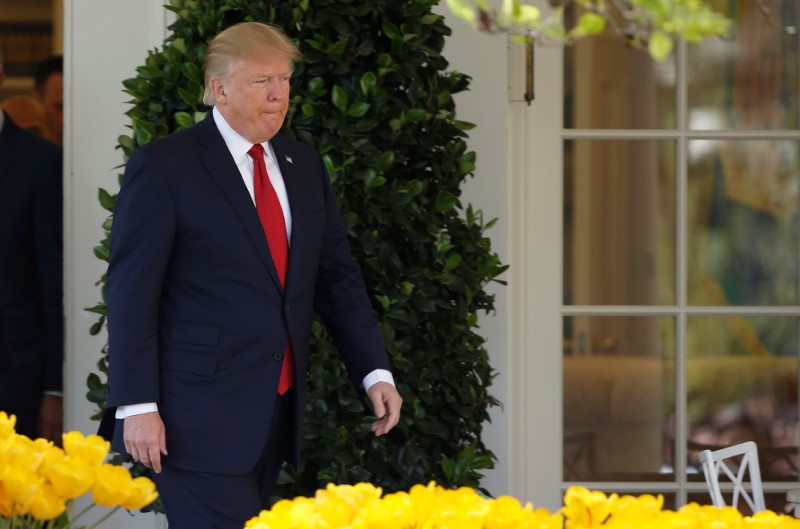By David Morgan
WASHINGTON (Reuters) - U.S. President Donald Trump does not like the "border adjustment" tax cooked up by U.S. House Speaker Paul Ryan and other Republicans in the House of Representatives. At least, he does not like the term.
"I don't like the word 'adjustment', because our country gets taken advantage of, to use a nice term, by every other country in the world," Trump told Fox Business News in an interview that aired on Wednesday. "Adjustment means we lose. We lose."
"Let's call it an import tax. Let's call it a reciprocal tax," he added. "Nobody gets angry when you say reciprocal tax."
Trump was talking about a provision in Ryan's House Republican tax blueprint that has polarized the tax reform debate, as the White House tries to score a much-needed legislative victory by overhauling the U.S. tax code for the first time since the Reagan era.
The proposal would exempt U.S. corporate export revenues from federal taxes, while requiring U.S. companies to shoulder the same flat 20 percent tax rate on supplies and other purchased products, whether produced overseas or domestically.
But the president appeared to favor an import tax that could be adjusted to reflect the country of origin's tax rate for U.S. products. He said such an approach could take the form of trade policy rather than tax policy.
"There has to be a certain reciprocal nature to it," the president said. "The other countries, if they're charging you a 50 percent tax, you say: 'O.K., whatever you charge, we're charging'."
The House border adjustment tax, or BAT (LON:BATS), would help Trump keep his campaign pledge to create manufacturing jobs, advocates say, by exempting U.S. export revenue from tax while subjecting imports to the same 20 percent corporate tax imposed on domestic products.
But the measure has been angrily denounced by import-dependent industries and rejected by enough Senate Republicans to call its political viability into question.
In his Fox interview, Trump lamented the inequalities of the international tax system, saying U.S. products face high tax rates overseas while foreign-made goods enter the U.S. market tax free.
Treasury Secretary Steven Mnuchin floated the idea of a "reciprocal" tax in February, but administration officials have offered few details and lobbyists have suggested that it could strongly resemble the House BAT proposal.

"I love the idea of reciprocal," Trump said. "You can call it a reciprocal or a matching tax or a mirror tax. There are numerous terms. But the reciprocal tax is very important."